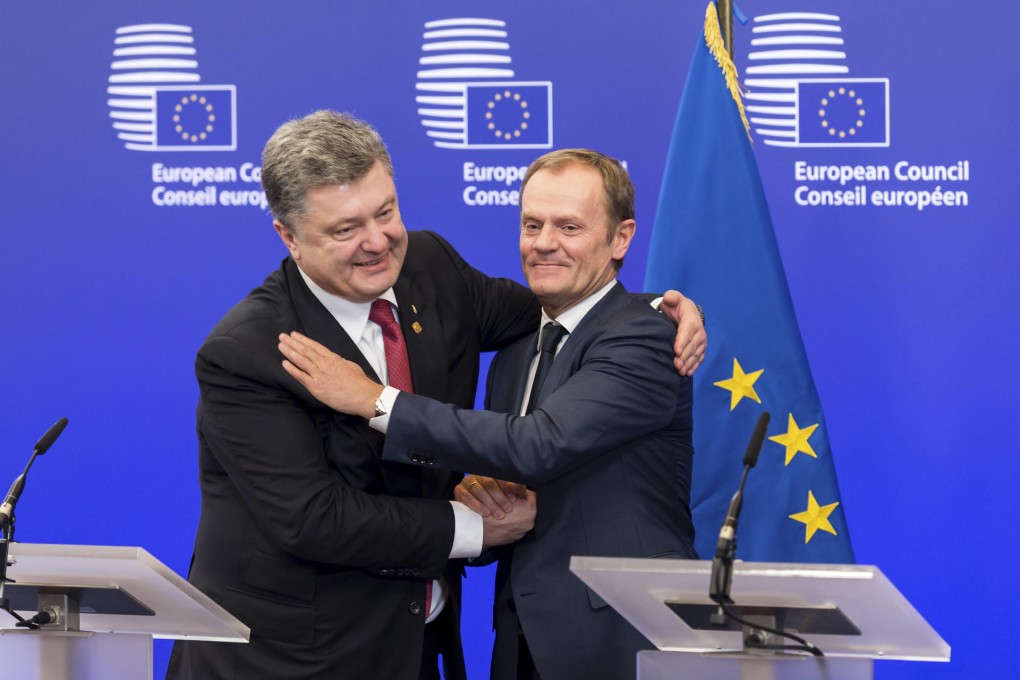US conspicuous by its absence at Minsk talks on Ukraine conflict
Ceasefire agreement brokered by Germany and France sees Washington sidelined as Ukraine conflict becomes a matter for Europe to resolve

Washington rarely shies away from seeking to wield its power in a world crisis, but in the tense negotiations that secured Ukraine's ceasefire it played an oddly behind-the-scenes role.
While US officials insist that from the get-go the Obama administration has been in lockstep with its European allies - and that's certainly true when it comes to the US and EU sanctions slapped on Russia - it's clear the diplomatic drive that sealed Thursday's accord came from Berlin and Paris.
It was German Chancellor Angela Merkel and French President Francois Hollande who took on Russian President Vladimir Putin and his Ukrainian counterpart Petro Poroshenko during a 17-hour negotiating marathon in Belarus. No US observers or negotiators were present.
"It would have actually been quite useful even if the EU was at the negotiation table. The absence of the Americans and the EU is actually quite startling and quite shocking," said Judy Dempsey a senior associate with the Carnegie Europe think tank.
Meanwhile, Washington is stressing sanctions will not be eased until all points of the deal - including the ceasefire, withdrawal of heavy weapons and a closure of the Russian-Ukrainian border - are implemented.
Any more weapons transfers or violation of the deal "would cause us and our partners to have to impose more costs," warned the US official. Washington is now working to shore up the roadmap aimed at ending the 10-month war between Ukraine and pro-Moscow rebels, perhaps by supplying more monitors, along with drones and sensors, to enforce implementation.
Timing however, as with everything in the world of high-stakes diplomacy, is key.